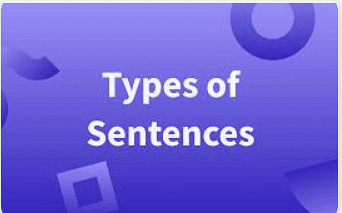Year 6 Exam > Year 6 Notes > Year 6 English > Simple, compound and complex sentences
Simple, compound and complex sentences | Year 6 English PDF Download
Types of Sentences

There are three types of sentence:
- Simple Sentences
- Compound Sentences
- Complex Sentences
All three types of sentences play crucial roles in writing effectively. They each serve specific purposes in conveying information clearly and engagingly.
What are Simple Sentences?
- Simple sentences consist of a subject (the 'what' or 'who') and a single main verb (a 'doing' word). They are fundamental in structure and are often used to deliver clear and concise points.
- For instance: 'He walked quickly back to the house.'
- Simple sentences are essential for making straightforward statements. However, it's important to note that relying solely on simple sentences may lead to a lack of detail in your writing, potentially causing your readers to lose interest.
What are compound sentences?
- A compound sentence consists of more than one verb and contains two or more clauses.
- Each clause in a compound sentence can stand alone and is connected using coordinating conjunctions like 'and', 'but', and 'so'.
- Examples of Coordinating Conjunctions:
- George realized he had forgotten his wallet, so he walked quickly back to the house.
- Both clauses on each side of 'so' make sense independently.
- Compound sentences are valuable for linking events and ideas in writing.
What are complex sentences?
- Definition of Complex Sentences: Complex sentences consist of a main clause and one or more subordinate clauses. Subordinate clauses, also known as dependent clauses, do not form complete sentences on their own and rely on the main clause for context.
- Importance of Subordinate Clauses: Subordinate clauses provide additional information to the main clause, enhancing the detail and interest in writing.
- Example:
- Original Sentence: George wanted to stay outside despite the driving rain and wind.
- Explanation: In this sentence, "despite the driving rain and wind" is a subordinate clause because it cannot stand alone as a complete thought. It adds context to why George wanted to stay outside.
- Function of Complex Sentences: Using complex sentences enriches writing by offering a more nuanced description of actions and events.
- Enhancing Writing:
- Detail: Complex sentences help in providing detailed information by allowing for the inclusion of various clauses.
- Interest: They make writing more engaging by structuring information in a sophisticated manner.
- Application in Writing: Writers can use complex sentences to convey complex ideas, relationships, and emotions effectively.
Question for Simple, compound and complex sentencesTry yourself: Which type of sentence consists of a main clause and one or more subordinate clauses?View Solution
The document Simple, compound and complex sentences | Year 6 English is a part of the Year 6 Course Year 6 English.
All you need of Year 6 at this link: Year 6
|
26 videos|58 docs|10 tests
|
FAQs on Simple, compound and complex sentences - Year 6 English
| 1. What are the three types of sentences? |  |
Ans. The three types of sentences are simple, compound, and complex sentences.
| 2. What types of sentences are commonly taught in UK schools? |  |
Ans. UK schools commonly teach simple, compound, and complex sentences to students.
| 3. What are some examples of simple sentences? |  |
Ans. Examples of simple sentences include "The cat sat on the mat" and "She is reading a book."
| 4. How are compound sentences formed? |  |
Ans. Compound sentences are formed by joining two independent clauses with a coordinating conjunction or a semicolon.
| 5. Can you provide an example of a complex sentence? |  |
Ans. An example of a complex sentence is "Although it was raining, she went for a walk."
Related Searches




















